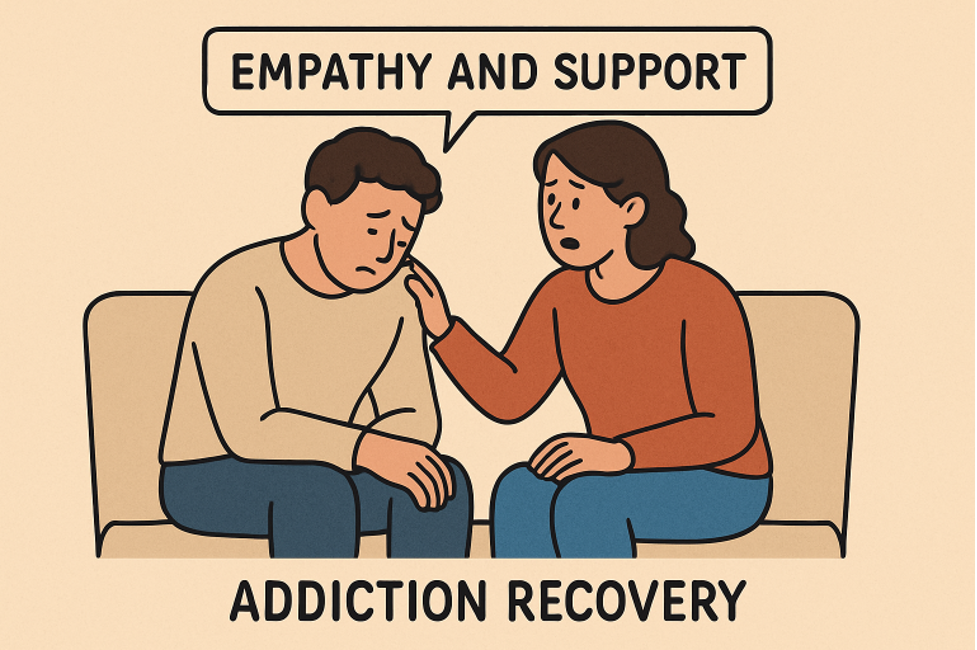What Is Addiction Stigma?
Addiction stigma clouds public perception, reinforcing false beliefs that substance use disorders are moral failings rather than complex health challenges. These distorted views foster shame and silence among those struggling with addiction. While medical and psychological research confirms addiction is a health condition, the lingering stigma acts as a formidable barrier to recovery. Organizations like Heartwood Recovery are helping people and communities move beyond judgment, creating pathways to healing rooted in understanding and support.
Stigma doesn’t just hinder recovery on a personal level; it also shapes societal responses. People may hesitate to seek help or even acknowledge their struggles, fearing the negative labels associated with addiction. Individuals and institutions can dismantle these barriers by encouraging empathy and offering support. Initiatives modeled by places such as Heartwood Recovery demonstrate how fostering compassion benefits individuals and the broader community.
Social Barriers Caused by Stigma
The consequences of addiction stigma ripple through every facet of life, ranging from employment and housing to healthcare and relationships. People in recovery often encounter discrimination in the workplace, where admitting to a substance use history can threaten job security and advancement. Finding stable housing can be equally daunting, as landlords may be reluctant to rent to those with known addiction backgrounds. Within families, cycles of blame and misunderstanding frequently fracture support systems vital for lasting change.
According to data from the Substance Abuse and Mental Health Services Administration, nearly one in four individuals in recovery report instances of discrimination directly related to their history of addiction. These social barriers significantly increase the risk of relapse, highlighting the need for environments that nurture, not isolate, those on the path to recovery.
The Role of Compassion in Overcoming Stigma
Compassion serves as a driving force capable of reversing the harm caused by addiction stigma. When healthcare providers, families, and communities offer nonjudgmental support, individuals feel empowered to pursue recovery openly. Evidence indicates that treatment environments grounded in empathy foster greater trust, stronger engagement in care, and notably improved outcomes.
Emphasis on compassionate care means treating individuals as people first—recognizing the courage required for recovery and validating their experiences. This approach enables healing beyond the physical to encompass mental and emotional well-being. Overcoming addiction is most likely in spaces focused on hope, dignity, and growth.

Building Supportive Communities
Communities that prioritize inclusion, education, and open dialogue can be transformative for people living with addiction. Collaborative efforts between local leaders, law enforcement, health services, and faith-based groups break down silos and build comprehensive support networks. Community campaigns—such as mental health fairs, training workshops, and recovery-friendly workspaces—address misconceptions and foster a sense of belonging for everyone.
Promoting recovery is not simply about providing services but about nurturing a culture where all individuals are valued and empowered to seek help without shame. Connections forged in recovery-friendly communities ripple outward, changing lives and changing minds.
Policy Changes and Public Awareness
Legal and policy reforms are critical for systemic change. Many states have adopted harm reduction approaches—such as providing naloxone, creating syringe service programs, and ensuring access to mental health care—that both save lives and challenge harmful stereotypes. These policy shifts are often propelled by advocacy groups, healthcare professionals, and people with lived experience pressing for compassion-based solutions.
Rising public awareness has encouraged updates in media representation and public health campaigns, leading to a more informed and empathetic society.
Best Practices for Supporting Recovery
- Always use person-first language (e.g., “person in recovery” instead of “addict”) to honor individual dignity.
- Champion and volunteer with peer-led recovery programs in your community.
- Remain informed by reading scientific resources focused on addiction and mental health.
- Create safe environments for open discussion, where people can share their stories without fear of judgment.
- Confront negative stereotypes when you hear them, and replace misinformation with facts and empathy.
Promoting Recovery Through Understanding and Support
Addiction stigma remains a significant barrier to recovery, influencing personal experiences and shaping societal attitudes. By fostering compassion, building supportive communities, and advocating for policy and awareness changes, we can dismantle these barriers and empower individuals to seek help without shame. Emphasizing empathy, person-first language, and evidence-based practices strengthens recovery outcomes and nurtures environments where hope and dignity thrive. Ultimately, overcoming stigma is not just about changing perceptions—it’s about creating a culture that values understanding, inclusivity, and the human potential for healing and growth.

